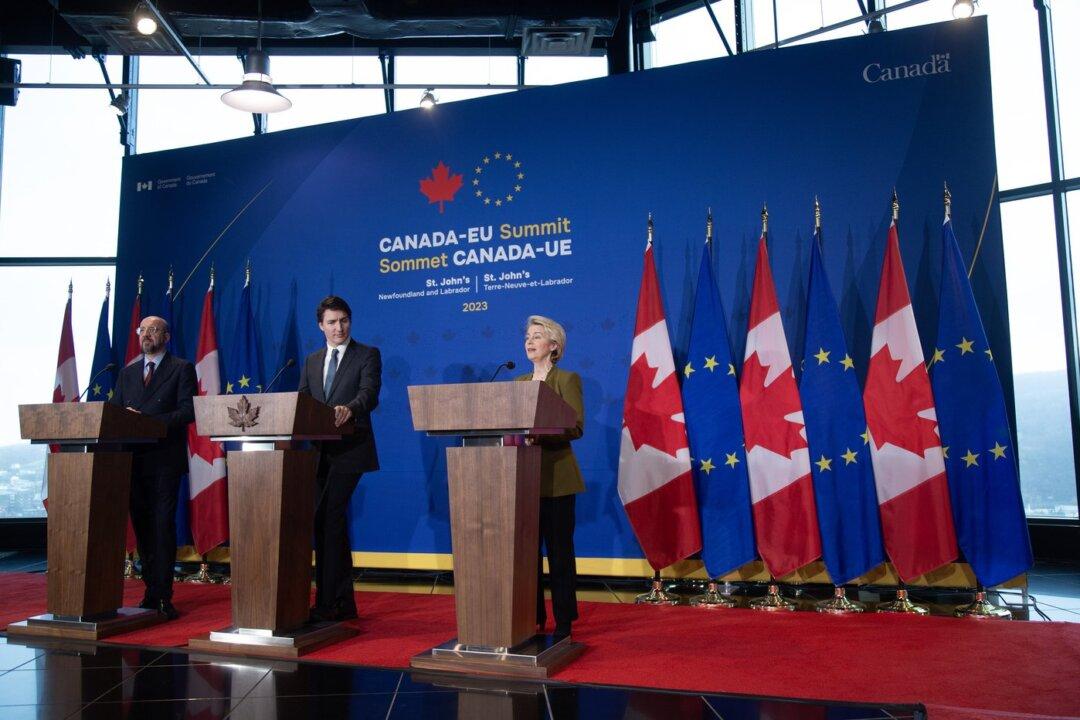Canada and the European Union announced on Nov. 24 that they are making strides toward new partnerships on green energy, digital transformation, and research funding, as a Canada-EU Summit got underway in Newfoundland.
After Prime Minister Justin Trudeau announced during opening remarks on Nov. 23 that Canada is joining Horizon Europe, a $100-billion scientific research program, the two parties said in a joint statement on Nov. 24 that substantive negotiations are complete, and they are working toward its “prompt signature and implementation.”





